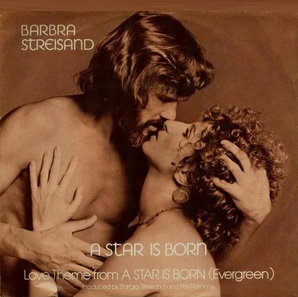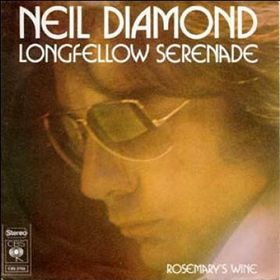
Gordon Meredith Lightfoot Jr. is a Canadian singer-songwriter and guitarist who achieved international success in folk, folk-rock, and country music. He is credited with helping to define the folk-pop sound of the 1960s and 1970s. He is often referred to as Canada's greatest songwriter and is known internationally as a folk-rock legend.

"The Wreck of the Edmund Fitzgerald" is a 1976 hit song written, composed and performed by Canadian singer-songwriter Gordon Lightfoot to commemorate the sinking of the bulk carrier SS Edmund Fitzgerald on Lake Superior on November 10, 1975. Lightfoot drew his inspiration from Newsweek's article on the event, "The Cruelest Month", which it published in its November 24, 1975, issue. Lightfoot considers this song to be his finest work.

"Me and Bobby McGee" is a song written by American singer-songwriter Kris Kristofferson and originally performed by Roger Miller. Fred Foster shares the writing credit, as Kristofferson intended. A posthumously released version by Janis Joplin topped the U.S. singles chart in 1971, making the song the second posthumously released No. 1 single in U.S. chart history after "(Sittin' On) The Dock of the Bay" by Otis Redding. Jerry Lee Lewis also released a version reaching number 1 on the country charts in 1971. Billboard ranked Joplin's version as the No. 11 song for 1971.

"The Air That I Breathe" is a ballad written by Albert Hammond and Mike Hazlewood, initially recorded by Albert Hammond on his 1972 album It Never Rains in Southern California.

Sundown is Canadian singer Gordon Lightfoot's tenth original album, released in 1974 on the Reprise Records label. It reached No. 1 in the US on the pop chart, the only Lightfoot album to achieve this. In his native Canada, it topped the RPM 100 for five consecutive weeks, first hitting No. 1 on June 22, 1974, the same day it reached the top on the south of the border.

"Evergreen" is the theme song from the 1976 film A Star Is Born. It was composed and performed by Barbra Streisand with lyrics by Paul Williams, and arranged by Ian Freebairn-Smith. The song was released on the soundtrack album to A Star Is Born.

"Sundown" is a song by Canadian folk artist Gordon Lightfoot, from the titular album, released as a single in March 1974.

"If You Could Read My Mind" is a song by Canadian singer-songwriter Gordon Lightfoot. It reached No. 1 on the Canadian Singles Chart on commercial release in 1970 and charted in several other countries on international release in 1971.

"Another Saturday Night" is the title of a 1963 hit single by Sam Cooke from the album Ain't That Good News. The song was written by Cooke while touring in England when staying in a hotel room where no female guests were allowed. It reached No. 10 on the Billboard Hot 100 and was No. 1 on the R&B chart for a single week. In the UK, the song peaked at No. 23 on the UK Singles Chart.

"Longfellow Serenade" is the title of a 1974 song by the American singer-songwriter Neil Diamond. It was written by Diamond, produced by Tom Catalano, and included on Diamond's album Serenade.

"My Melody of Love" is the title of a popular song from 1974 by the American singer Bobby Vinton. Vinton adapted his song from a German schlager song "Herzen Haben Keine Fenster" composed by Henry Mayer, and it appears on Vinton's album Melodies of Love. The song was also recorded by Spanish pop singer Karina as "Palabras de Cristal".

"If You Love Me " is a song written by John Rostill that was a 1974 hit single for Olivia Newton-John. It was her second release to hit the top 10 in the United States, reaching number 5 on the pop chart and number 2 on the Easy Listening chart. It also reached number 2 on the Billboard country chart. As with her single "Let Me Be There", Mike Sammes sings a bass harmony.

"What You Won't Do for Love" is a song by American singer-songwriter Bobby Caldwell. It was released in September 1978 as the lead single from his eponymous debut album. It was written by Caldwell and Alfons Kettner, and produced by Ann Holloway.

"You and Me Against the World" is a song written by Kenny Ascher and Paul Williams, recorded by Helen Reddy for her 1974 album Love Song for Jeffrey.

Gordon Lightfoot is a Canadian singer-songwriter who achieved international success in folk, folk-rock, and country music. He is credited with helping to define the folk-pop sound of the 1960s and 1970s. He is often referred to as Canada's greatest songwriter and is known internationally as a folk-rock legend.
"Ribbon of Darkness" is a song written by Gordon Lightfoot that was released in 1965 as a single by Marty Robbins. The song was Robbins' eleventh number one on the U.S. country singles chart, where it spent one week at the top and a total of nineteen weeks on the chart.

Helen Reddy, often referred to as the "Queen of 70s Pop", recorded 18 studio albums, seven of which have achieved sales of 500,000 units in the US for which they were awarded Gold certification by the Recording Industry Association of America. One of those seven, I Am Woman, eventually went Platinum by reaching sales of one million copies, and her first compilation album, Helen Reddy's Greatest Hits, was awarded Double Platinum status in 1992 for hitting the two million sales mark. The respective US and Canadian album charts in Billboard and RPM magazine each had appearances by 10 of these LPs during the 1970s.

"It's a Miracle" is a 1975 single by Barry Manilow and was the second release from his album, Barry Manilow II. "It's a Miracle" went to number twelve on the U.S. Billboard Hot 100 and was Manilow's second number one on the U.S. Easy Listening chart, spending one week at number one in April 1975. The single also peaked at number fifteen on the disco/dance chart, and was the first of four entries on the chart. "It's a Miracle" was followed by "Could It Be Magic".

"If You Know What I Mean" is a song written and recorded by Neil Diamond. It is a track from Diamond's 1976 album, Beautiful Noise, and was his third number one on the Easy Listening chart, where it spent two weeks. "If You Know What I Mean" went to number one for two nonconsecutive weeks and peaked at number eleven on the Billboard Hot 100. In Canada, the song reached number 19 on the pop singles chart and hit number one on the Adult Contemporary chart.

"Almost Over You" is a 1983 single by Sheena Easton from her Best Kept Secret LP. The single reached number 25 on the Billboard Hot 100, while its Adult Contemporary peak was number 4. In Canada, the song reached number 35 and number one on the Adult Contemporary chart. The lyrics tells of a woman who already overcame the pain, misery, and shattered dreams her former lover gave to her, which suggests the title.


















